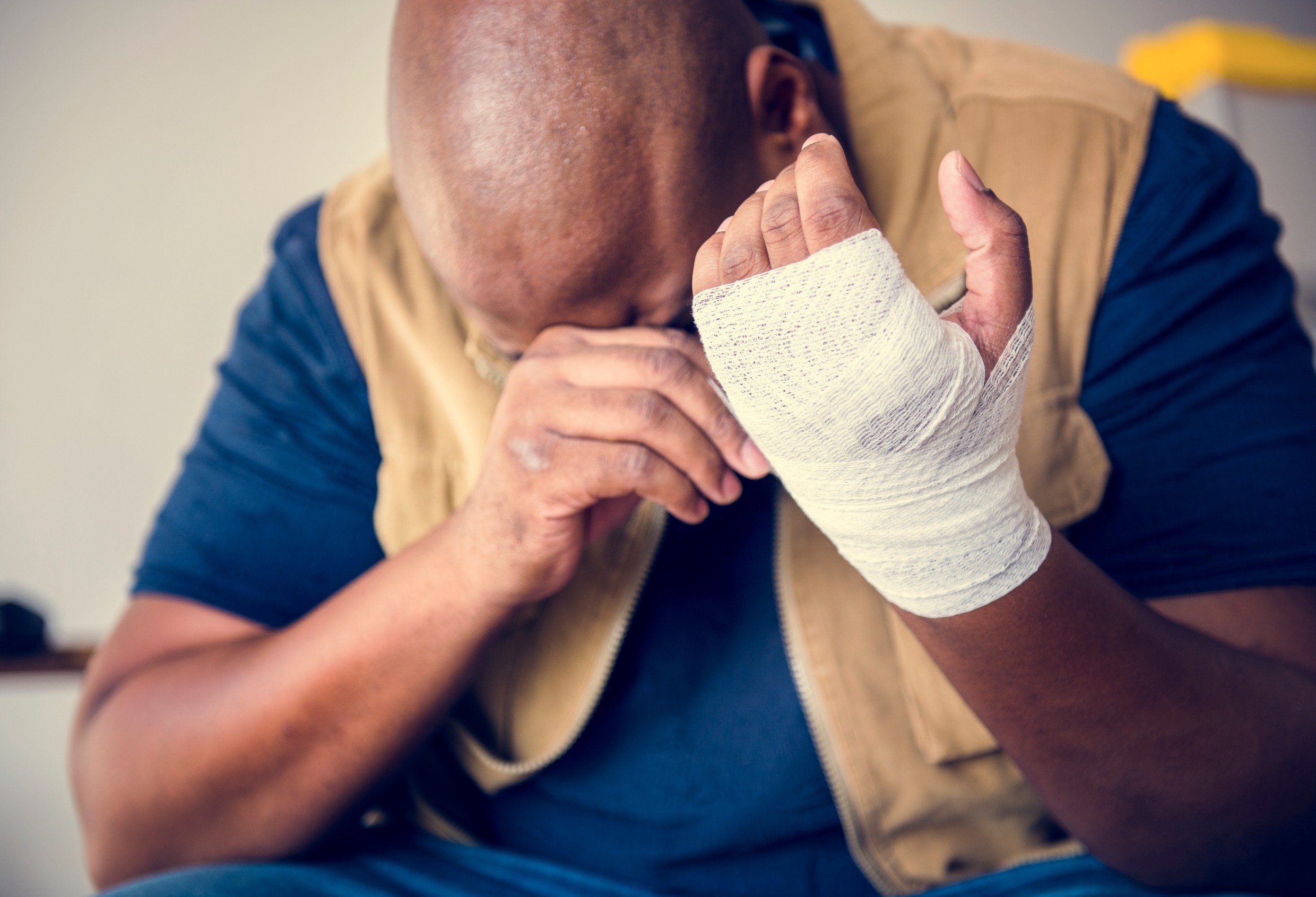
Many people know they can sue someone and get compensation if they are physically harmed by another individual in an accident. However, most people are unaware that emotional distress caused by another’s action is also eligible for compensation.
In this blog post, we will shed light on how you can claim damages for emotional distress due to an injury-causing accident, how different kinds of losses can be attributed to these types of claims, and most importantly, whether personal injury law actually encompasses such intangible damages. So let’s get started!
What is Emotional Distress and How Does it Relate to Personal Injury Law
Emotional distress can encompass a wide range of emotions resulting from a traumatic event. It can include feelings of fear, anxiety, depression, and even post-traumatic stress disorder.
Emotional distress may be physical or psychological and can be just as debilitating as a physical injury. In the context of personal injury law, emotional distress can be the result of an accident, a medical mistake, or other traumatic experience.
Although emotional distress is not always visible to others, it is still a serious consideration in personal injury cases. Some states allow individuals to sue for emotional distress damages in addition to compensation for physical injury and other damages.
Understanding emotional distress is crucial in determining the full extent of damages in a personal injury case.
Different Types of Claims for Emotional Distress
There are typically two types of emotional distress claims you can pursue: Intentional Infliction of Emotional Distress (IIED) and Negligent Infliction of Emotional Distress (NIED).
Intentional Infliction of Emotional Distress (IIED) is a claim that arises when one party’s outrageous conduct results in severe emotional distress to another. Courts are usually stringent about these cases, requiring evidence that the behavior was indeed outrageous and went beyond the bounds of decency. Additionally, the plaintiff must prove that the distress suffered was severe, not just minor or transient upset.
On the other hand, Negligent Infliction of Emotional Distress (NIED) is based on a party’s inadvertent causing of emotional distress, usually due to their negligence.
For an NIED claim, the plaintiff must typically show that a physical injury occurred or that they were in the “zone of danger” of a physical incident, and that the emotional distress resulted from this experience.
However, some states have begun to relax these requirements, recognizing that emotional distress can occur even in the absence of physical injury.
In general, courts treat emotional distress claims with caution due to their subjective and often intangible nature. However, with the right evidence, personal injury victims can receive compensation for emotional distress alongside their physical injuries.
The Effects of Mental Health on Personal Injury Cases
Mental health implications can significantly influence personal injury cases, often amplifying the severity of the damages claimed. Mental illnesses like depression, anxiety, or post-traumatic stress disorder (PTSD) ensuing from the accident can exacerbate the suffering of the victim, adding another layer of complexity to the claim.
In such instances, the emotional trauma can be as debilitating as the physical injuries, sometimes even more so. It may affect the victim’s ability to work or maintain relationships, leading to lost wages and decreased quality of life. It’s crucial to recognize these are legitimate, compensable damages under the law.
However, claiming compensation for mental health issues can be challenging. It requires substantial medical documentation and evidence of treatment, similar to physical injury claims.
It’s important to note that the manifestation of mental health symptoms might not be immediate and can develop over time. Therefore, legal counsel and mental health support should be sought promptly after an incident to ensure comprehensive documentation and treatment.
Such measures will strengthen the personal injury claim, allowing for fair compensation for all damages–physical and psychological.
Challenges Faced in Pursuing an Emotional Distress Claim in Court
Pursuing an emotional distress claim in a personal injury lawsuit comes with its unique set of challenges. Firstly, emotional distress is inherently subjective and can be difficult to quantify, unlike physical injuries where medical reports and bills can establish the extent of harm and associated costs.
Secondly, emotional distress can often be dismissed as an expected consequence of any traumatic event, thus proving that the emotional distress exceeds the normal response can be arduous.
Although some states allow claiming compensation for emotional distress without a physical injury, the “impact rule” in others necessitates a physical impact and visible injury for such claims. It can pose a barrier for victims who suffer severe emotional trauma without a corresponding physical injury.
The burden of proof lies on the plaintiff, who must substantiate their claims of emotional distress with credible evidence. It might include psychiatric evaluations, therapy records, prescriptions, or testimony from mental health professionals.
However, privacy concerns or societal stigma associated with mental health could deter individuals from seeking necessary help, thereby affecting their chances of securing just compensation.
Despite these challenges, a well-drafted emotional distress claim, backed by strong evidence and expert testimonies, can significantly contribute to the overall compensation awarded in personal injury lawsuits. It is advisable to seek the guidance of experienced legal professionals when pursuing such claims.
Preparing for Legal Action if You Suffer From Emotional Distress
If you are a victim of personal injury and suffering from emotional distress, preparing for legal action is a crucial step toward obtaining fair compensation. A well-prepared case begins with thoroughly documenting your experience, including physical and emotional trauma.
Firstly, seek professional help and get a medical evaluation as soon as possible after the traumatic event. This process should include both physical and mental health assessments.
Keep a detailed record of all your medical visits, treatments, prescriptions, and discussions with mental health professionals. It will serve as crucial evidence to support your emotional distress claim.
Secondly, begin a personal journal to record your daily experiences of emotional distress. It could include descriptions of feelings, symptoms, or incidents that trigger emotional responses.
Thirdly, collect evidence of any impacts on your daily life. Include testimonies from family, friends, or colleagues, who can attest to the changes in your behavior or mood after the injury.
Finally, consult a seasoned personal injury attorney experienced with emotional distress claims. They can help you with the lawsuit process, guide you in gathering necessary evidence, and represent your interests in court, increasing your chances of receiving a fair settlement.
Remember, while the legal journey may seem long and challenging, it’s important not to lose sight of your right to compensation for your physical injuries and emotional distress.
About Kemp Ruge and Green-
Are you looking for personal injury lawyers in Tampa? At Kemp Ruge and Green, we fight on your behalf! Regardless of where you live in the Tampa Bay region, including Hillsborough, Pasco, Pinellas, and Hernando Counties, we look forward to helping you make the best of your situation.
When you choose Kemp Law Group to help you through the legal process, you are being helped by a committed firm and the community in which we all live. When you choose us, you will get an attorney committed to getting the best possible result for your case.
Our firm is unique; we are committed to our community and clients with a level of legal expertise that is among the best in the area. We were also featured in Positively Tampa for our efforts in serving the community.
We can help you with motor accidents, boat accidents, semi-truck accidents, bus accidents, and car accidents. Fill out our contact form or call 727-835-8327 to get a no-risk, free consultation.
-
November 2, 2024
Questions for Lawyers in Pensacola, Florida -
November 1, 2024
Hit-and-Run's in Pensacola, Florida -
November 1, 2024
Personal Injury Protection in Pensacola, Florida -
November 1, 2024
Personal Injury Lawsuits in Pensacola, Florida
Contact Us
About Your Case
We're ready to fight on your behalf. Request a free, no-risk consultation with our attorney's today.


